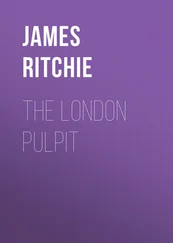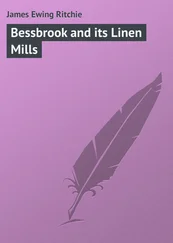James Ritchie - Here and There in London
Здесь есть возможность читать онлайн «James Ritchie - Here and There in London» — ознакомительный отрывок электронной книги совершенно бесплатно, а после прочтения отрывка купить полную версию. В некоторых случаях можно слушать аудио, скачать через торрент в формате fb2 и присутствует краткое содержание. Жанр: foreign_prose, Путешествия и география, на английском языке. Описание произведения, (предисловие) а так же отзывы посетителей доступны на портале библиотеки ЛибКат.
- Название:Here and There in London
- Автор:
- Жанр:
- Год:неизвестен
- ISBN:нет данных
- Рейтинг книги:4 / 5. Голосов: 1
-
Избранное:Добавить в избранное
- Отзывы:
-
Ваша оценка:
- 80
- 1
- 2
- 3
- 4
- 5
Here and There in London: краткое содержание, описание и аннотация
Предлагаем к чтению аннотацию, описание, краткое содержание или предисловие (зависит от того, что написал сам автор книги «Here and There in London»). Если вы не нашли необходимую информацию о книге — напишите в комментариях, мы постараемся отыскать её.
Here and There in London — читать онлайн ознакомительный отрывок
Ниже представлен текст книги, разбитый по страницам. Система сохранения места последней прочитанной страницы, позволяет с удобством читать онлайн бесплатно книгу «Here and There in London», без необходимости каждый раз заново искать на чём Вы остановились. Поставьте закладку, и сможете в любой момент перейти на страницу, на которой закончили чтение.
Интервал:
Закладка:
But let us look around us. We, the strangers, are up in a comfortable gallery at one end of a long, narrow, and rather dark chamber, along the sides of which are narrow windows of painted glass, and bronze statues of the barons of the olden time. In a smaller gallery, just beneath us, sit the parliamentary reporters. Exactly opposite us is the Throne; its splendour we but faintly perceive, for it is veiled from vulgar eyes; but there it is – the very spot where Majesty sits, while around her are principalities and powers, – there the royal assent is given to laws which affect the weal or woe of an empire – there, with silvery voice, and faultless delivery, and perfect pronunciation, are spoken royal speeches, greedily bought up in second editions of the morning papers, and flashed along the electric wires to all the great cities of our own and the capitals of other lands. At present a few peers are leaning against the rails and chatting – that is all. A little below the throne is the purple velvet cushion – the object of so many a struggle – of so many a year of unflinching toil – of so many a defence of party spoken in another place – of so many a clever piece of intrigue. We mean the woolsack, on which sits the Lord Chancellor Chelmsford. If the debate is continued till a late hour, and the keeper of her Majesty’s conscience retires to dine, Lord Redesdale acts as chairman pro tem . His lordship is eccentric in his dress – black trousers, white cravat, buff waistcoat, blue coat and brass buttons, white stockings and shoes, compose a tout ensemble rarely seen in the House of Lords or elsewhere. Greater men than Lord Chelmsford have sat on the woolsack. We live in a little age. Our great men are little men after all. Our Lord Chancellor has never done what other Lord Chancellors have done, viz., wielded the fierce democracy of the lower house, shone unrivalled on the parliamentary arena, thundered from the platform, won fame by their daring, and acumen, and learning, and eloquence, in every corner of the land. Indeed, he makes no pretensions to oratory or greatness of any kind. He is an able lawyer and eager partisan, little more. In this respect not at all resembling, or rather very much differing from, the extraordinary individual who has just darted on the woolsack, as if he would edge off the Chancellor and take his very seat. That individual we need not name; a glance at the nose and plaid trousers – trousers which he is incessantly hitching up when he speaks – are sufficient. It must be my Lord Brougham, and no one else. To no other man born of woman has nature vouchsafed the same power of universality. No other man would attempt to do what he is now doing, talking law with one man, politics with another, and scandal with a third, and all the while listening to the debate, and qualifying himself to take a part in it. In the course of time we shall see him pursuing an erratic career in any part of the house except in that one part in which sit ministers and their supporters. Amongst their ranks Lord Brougham is never to be found. To the party in power he is always opposed. It is his pride that he never worships the rising sun. The Ex-Chancellor has never forgotten or forgiven the treatment he received, but it does not affect his health – it does not tinge his life with melancholy. He does not let disappointment, like a worm in the bud, prey upon his damask cheek. His hair is a little greyer – his face is a little fatter; that is all the change the wear and tear of half a century of public life has produced: and of such a half century! the half century that waged war with France – triumphed at Waterloo – carried Reform – repealed the Corn Laws – and saw the birth of railways and the electric telegraph; a half century of more interest than any preceding age – the work and the excitement of which wore out our Romillys, Follets, and Horners, with premature decay. Yet Brougham still lives. Slightly altering Byron, we may say of him, —
Time writes no wrinkles on his brazen brow,
Such as the Edinburgh’s dawn beheld he wriggleth now.
Below the woolsack is a table, at which Lord Campbell generally sits; and on each side are ranged the orators and partizans of the two great sections which, under some name or other, always have existed and always will exist in our national history. The uninitiated call them Conservatives and Whigs; the wiser simply term them the men who are in office and the men who are not. The Government for the time being sits on the right hand of the Lord Chancellor, who acts as Speaker, and who has a far easier berth of it than Mr. Denison. The Lords are not long-winded, nor noisy; not passionate, and, like true Britons, always adjourn to dinner. Hence no post-prandial scenes are visible. In the small hours no patriots, smelling strongly of whisky-and-water and cigars, expatiate to a wearied assembly on that ever fertile theme, the wrongs and woes of the Green Isle. The Lords, like Mr. Wordsworth’s gods —
“Approve the depth but not the tumult of the soul.”
We can never fancy the House of Lords to be what you may sometimes take the House of Commons to be – a bear garden or a menagerie. You miss the vulgarity of the one, and you also miss its excitement and earnestness – its cries of “question” and “divide” when some well-known bore is on his legs, and its long resounding cheers when some favourite partisan sits down. All is staid, and correct, and proper, with the exception of a tirade from the Rupert of debate, or some father in God on the Episcopal Bench. We would fain say a few words about these reverend gentlemen. One could hardly expect to find the ministers of the self-denying and lowly Jesus of Nazareth sitting in a gorgeous house with the proudest and wealthiest of the English peers. You would expect to find them rather by the bed-side of the sick, in the houses of the poor, combating with the vice and infidelity of the day; or else you would look for them in their studies, surrounded with stately folios; or in the midst of their clergy, reviving the fainthearted, urging on the timid, counselling the young, and girding up the energies and hearts of all. You would expect to find them in the House of the Lord rather than in the House of Lords. In short, anywhere but in the turmoil of party conflict. This, however, is not the case. The bishops are almost the first object that attracts your eye. They sit on benches by themselves, on the Government side, but beyond the ministerial bench. In the “dim religious light” of the Upper House, you can scarcely make out what they are. You see venerable wigs, and black robes, and lawn sleeves; and if you look sharp, you may, at times, catch the outline of a reverend face – most probably of Dr. Tait, the energetic bishop of London, or of the pug nose and plebeian profile of Samuel of Oxford. They are very regular in their attendance, and frequently take part in the debate. Indeed, the latter bishop is a great man in the Lords; and so was Henry of Exeter, but his voice is seldom heard, and his name never mentioned now, though he is generally present, and sits at the end of the benches nearest to the spectator, while the Archbishop of Canterbury, who is also pretty regular in his attendance, occupies the other end of the bench. The other bishops do not muster quite so strongly. Half of them is a good attendance. It is to be hoped they are more profitably employed.
Coming lower down, our eyes rest on the men who did carry on government, and generally occupy the unenviable situation of Ministers of the Crown. At present they are out of office, and are seated on the Lord Chancellor’s left. Generally, at the top of the bench, is seated a slight, undersized, juvenile, red-haired Scot – that is the Duke of Argyle, who, in virtue of being a Duke, and the husband of the daughter of the Duchess of Sutherland, was Lord Privy Seal. His lordship is as pert and ready as any forward youth in a debating-club, and has much of the appearance and manner of such a one. He gives you no great idea of hereditary statesmanship, the only quality conspicuous in him being a tolerable amount of modest assurance, perfectly natural to a peer who is an author and has lectured at mechanics’ institutions, and read papers before the British Association. By him is seated Lord Panmure, very red in the face, which redness seems to arise from a military stock which he persists in wearing. There sits the Marquis of Clanricarde, who has suffered much from public opinion, and who deserves to suffer, if only his conduct in certain electioneering matters be taken into account. The Earl of Granville is the leader of this small band; he is a pleasant looking man, and speaks not badly for a lord. The Whig Nestor, the aged Marquis of Lansdowne, worthy of remembrance for his friendship for Tom Moore, is easily detected by his blue coat and brass buttons, that remnant of the palmy days of party. None of these men are remarkable for oratorical power. A strong contrast is presented by the illustrious personage sitting on the next row, higher up, just opposite the bishops – a severe, well-made, heavy, grey-haired man, who sits almost silent and sullen, as if he had no feelings, as if the debate was a sham, and he should be glad if it were over. We refer to
Читать дальшеИнтервал:
Закладка:
Похожие книги на «Here and There in London»
Представляем Вашему вниманию похожие книги на «Here and There in London» списком для выбора. Мы отобрали схожую по названию и смыслу литературу в надежде предоставить читателям больше вариантов отыскать новые, интересные, ещё непрочитанные произведения.
Обсуждение, отзывы о книге «Here and There in London» и просто собственные мнения читателей. Оставьте ваши комментарии, напишите, что Вы думаете о произведении, его смысле или главных героях. Укажите что конкретно понравилось, а что нет, и почему Вы так считаете.












